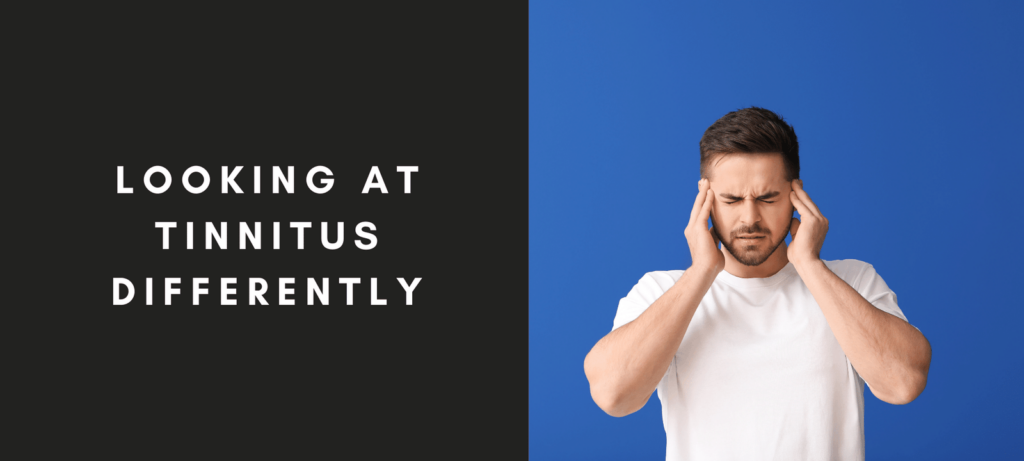I’ve had tinnitus for a long time. When I was in middle school, I used to think sirens were shrieking all night long. Then, in high school, I realized it was my head or ears creating these weird high pitch sounds. It wasn’t constant, and I noticed it only at nighttime. I didn’t tell anyone—I didn’t realize it wasn’t normal.
Over the years, I’ve had plenty of time to think about tinnitus. It wasn’t mentioned much in my bachelor’s or master’s programs (over twenty-five years ago). I studied it during my doctorate program, but that didn’t feel like enough. There is still much unknown about tinnitus, but a few things have come to light over the past few years. The answers I was seeking came from a change in my attitude and thoughts towards tinnitus. It didn’t come from an article, a webinar, or a book.
I received the Certificate Holder in Tinnitus Management from the American Academy of Audiology in 2020 (CH-TM). I learned helpful information studying for the certificate, but I still felt unsatisfied. I still had no answers about a cure for tinnitus, but there were many ways to habituate.
Therefore, I decided to share a few questions I asked myself and some answers that satisfied me.
I found closure with the answers to these questions, and maybe you will too.
Why do people have so many different reactions to tinnitus?
There are hundreds of reasons for the onset of tinnitus, but why are there so many different reactions? One person can ignore it, and another is seeking medication or counseling. This question has more than one answer.
Is it when the tinnitus presented itself that possibly indicates a person’s long-term reaction to it? Suppose the onset of tinnitus is during an overwhelmingly stressful time in a person’s life. Is the reaction more severe if it presents during a less stressful time?
When tinnitus is present, our limbic system creates a terrible adverse response and overreacts. Our limbic system is the part of the brain that controls our emotions. This may mean how we respond to our tinnitus is completely reliant on how our brain handles emotion and may directly correlate to when, how, and why the tinnitus started.
I understand how some have entirely negative feelings towards tinnitus no matter when it starts, but are these feelings stronger when associated with a horrible time in our lives? Are we reminded of this horrific time whenever tinnitus is present? In the tinnitus sufferers’ article, I wrote in May 2021, the sufferer’s response to stress was one of the top indicators of the onset of their tinnitus. If tinnitus is constantly associated with a negative memory, that could indicate the many different reactions.
I’m very fond of therapies and believe that they work. So, I asked myself what other diseases or conditions are out there that are manageable, but there is no cure? For example, there is no cure for diabetes or multiple sclerosis, but they are manageable. Different people will react differently to these conditions, and tinnitus is no different.
Changing the way we all look at tinnitus could be the key to living with it.
In addition, there are many things we can do to manage our tinnitus. Hearing aids, sound generators, and taking care of our health seem to be the number one solution to living well with tinnitus. So, I’ve changed my attitude towards treatment. If I can help 80% of the people manage their tinnitus, the quality of their lives might be better. That’s worth the shot. There will be another 10% who experience partial relief. Another 5% will refer for behavior therapy that is beyond my field. I will stay within my scope of practice.
It’s all attitude!
There are online managing programs with excellent instructors who work exclusively with tinnitus patients. You can find them on our tinnitus website here.




